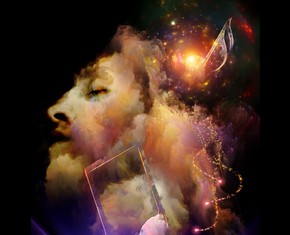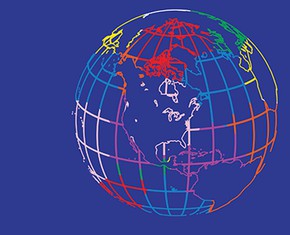The views expressed in our content reflect individual perspectives and do not represent the authoritative views of the Baha'i Faith.
No head of any major global religion had ever written a play before — until Abdu’l-Baha, the leader of the world’s Baha’is, revealed The Drama of the Kingdom in 1913.
The previous essay in this series featured the full script of that play, which he dictated spontaneously at the home of a British actor and playwright more than a century ago.
RELATED: The Drama of the Soul: the Baha’i Faith on Stage and Screen
The Baha’i Faith encourages and promotes the arts. Baha’u’llah, its prophet and founder, revealed poetry, and Abdu’l-Baha, his son and successor, put the Baha’i teachings about the arts into practice by adding the appellation of playwright to his many titles. His unique script, then, deserves our attention, especially for the profound symbolism it includes and the story it tells.
The play, dictated by Abdu’l-Baha in the classic three-act dramatic form, presents several remarkable symbolic elements, including an entire section that focuses on the role of symbolism itself in the revelation of spiritual truth. In this essay, let’s explore that one symbol, and see where it takes us.
As “The Drama of the Kingdom” opens, everyone awaits the coming of a new revelation, and when they hear the Promised One’s call in the form of heavenly music, they respond in two very different ways:
Now those who come to ask are more or less divided into the following groups. First those who, having heard of the Coming of the Promised One, frown and shrug their shoulders, returning to their work, scoffing and disbelieving. The second type are those who hear the music, strain their ears to catch the meaning of the Message, and their eyes to discern the Mystery. …
’But we await the signs,’ say the doubting ones. ’How, otherwise, shall we know? The earth must shake, the mountains be rent asunder. The Promised One shall conquer the East and the West.’
One arises and tells the people that these signs did not come outwardly, nor will they again. Those who look with the eyes of Truth shall see that these portents are of the Spirit.
One group of actors on the stage, who Abdu’l-Baha called “the doubting ones,” awaits a visible physical fulfillment of the prophecies of the past. They expect the entire Earth to shake, and the Promised One to literally conquer its countries. “We want to see the earthquake,” they clamor.
The other group of people in the play — “those who hear the music,” as Abdu’l-Baha described them — try to discern the inner meaning of the message and its mysteries. Attracted by a more spiritual and symbolic story, those perceptive souls understand the deeper meanings of the old prophecies, that the Promised One would conquer human hearts rather than land or buildings. Referring to this more attuned group, Abdu’l-Baha wrote that: “The blind receive their sight, the deaf their hearing, and those who were dead arise and walk, still wrapped in the garments of death.”
Of course, he’s not speaking here of literal dead people emerging from their coffins and walking — of zombies or the “undead” actually rising from the grave like some fundamentalists imagine might miraculously happen one day. Instead, as he wrote in a tablet included in “Selections from the Writings of Abdu’l-Baha”, that symbolic language about the dead arising conveys a much more universal meaning:
Spread far and wide the precepts and counsels of the loving Lord, so that this world will change into another world, and this darksome earth will be flooded with light, and the dead body of mankind will arise and live; so that every soul will ask for immortality, through the holy breaths of God.
In fact, Abdu’l-Baha’s entire play does what the best and finest dramas always attempt to do — reveal the existence of a more meaningful, lasting world beyond this merely temporal and physical one.
That promised earthquake, then, happens not in the ground, but in the ground of all being. Abdu’l-Baha explained, within the text of the play, that “The earthquake is the wave of spiritual life, that moves through all living things and makes creation quiver.”
This theme, repeated throughout the Baha’i teachings, refers to the coming of a new divine messenger, as this prayer from Baha’u’llah’s “Prayers and Meditations” explains:
Thou didst come, O my God, in the clouds of Thy spirit and Thine utterance, and lo, the entire creation shook and trembled, and the limbs of them who repudiated Thy testimonies were made to quiver, O Thou in Whose grasp is the lordship of all things!
Thou art He, O my God, Who hast summoned all men to turn in the direction of Thy mercy, and called them unto the horizon of Thy grace and bounties.
In “The Drama of the Kingdom”, Abdu’l-Baha embeds this theme of spiritual symbolism into every line. With his play, he asks all of us to seek out the deeper meanings of life, to go beyond the surface, try to comprehend the allusions, symbols, and mysteries of revelation, and look into the depths of our own souls to discover the truth.
















Comments
Sign in or create an account
Continue with Googleor